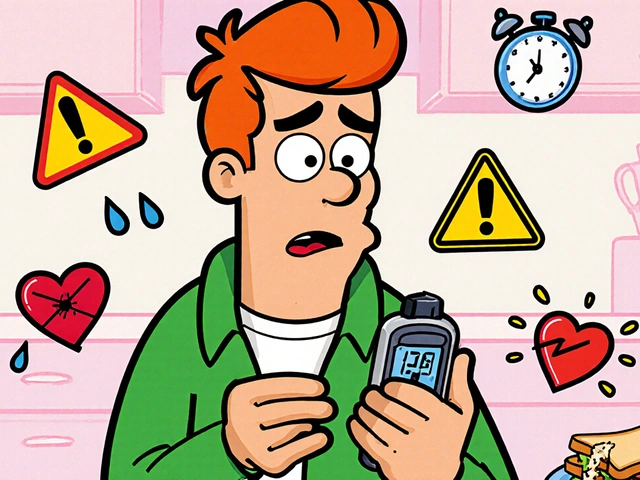Omeprazole: What It Is and How It Works
If you’ve ever been told you have heartburn, GERD, or a stomach ulcer, chances are your doctor mentioned omeprazole. It belongs to the proton pump inhibitor (PPI) family, which means it blocks the stomach’s acid‑producing pump. By cutting down acid, it eases burning, protects the lining of the gut, and helps ulcers heal.
Typical Uses and When to Take It
People use omeprazole for a few main reasons:
- Relief from frequent heartburn or acid reflux.
- Treatment of diagnosed gastroesophageal reflux disease (GERD).
- Healing and prevention of stomach or duodenal ulcers, especially those caused by NSAIDs.
- Management of Zollinger‑Ellison syndrome, a rare condition with excess stomach acid.
Most doctors prescribe it once daily, usually before breakfast. Taking it on an empty stomach lets the medication reach the pump more effectively.
Dosage Basics and How to Take It Safely
The standard adult dose is 20 mg once a day. For severe ulcer cases, doctors might start with 40 mg daily for a short period. Kids over 12 can use the same doses, but younger children need a pediatric formulation and a doctor’s guidance.
Here are a few practical tips:
- Swallow the capsule whole – don’t chew or crush it.
- If you miss a dose, take it as soon as you remember, unless it’s almost time for the next dose. Then just skip the missed one.
- Don’t stop abruptly after long‑term use. Talk to your doctor about tapering to avoid rebound acid production.
Common Side Effects You Might Notice
Most people tolerate omeprazole well, but a few side effects pop up occasionally:
- Headache or mild dizziness.
- Stomach cramps, nausea, or mild diarrhea.
- Dry mouth or a metallic taste.
These usually fade after a week or two. If you experience severe abdominal pain, persistent vomiting, or signs of an allergic reaction (rash, swelling, trouble breathing), seek medical help right away.
Things to Watch Out For: Interactions and Long‑Term Risks
Omeprazole can interact with several drugs. It can lower the effectiveness of certain antivirals, anti‑platelet meds like clopidogrel, and some heart medications. Always list all prescription and over‑the‑counter meds to your doctor.
Long‑term use (more than a year) has been linked to:
- Reduced absorption of vitamin B12, calcium, and magnesium.
- Higher risk of bone fractures, especially in older adults.
- Possible increased risk of certain gut infections.
If you need omeprazole for an extended period, your doctor may suggest supplements or periodic blood tests to keep an eye on these nutrients.
When to Call the Doctor
If your heartburn returns while on the medication, or if you need the drug for more than a few weeks without improvement, it’s time for a check‑up. Also, if you notice black or tarry stools, it could signal bleeding in the gut – get medical attention immediately.
Overall, omeprazole is a reliable tool for controlling excess stomach acid when used correctly. Stick to the prescribed dose, watch for side effects, and keep your doctor in the loop for any other meds you’re taking. With those steps, you’ll likely see relief from that uncomfortable burn and protect your digestive tract for the long run.





